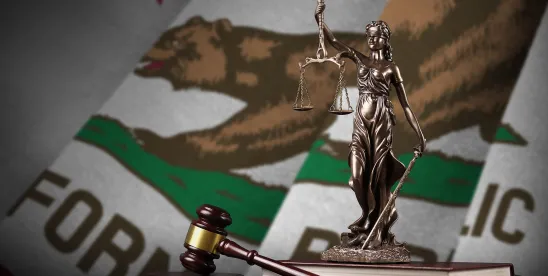On August 1, 2024, the California Supreme Court issued a decision in Turrieta v. Lyft that substantially narrows the authority of PAGA litigants to intervene in overlapping PAGA actions. The Supreme Court’s ruling confirms that the courts and the Labor & Workforce Development Agency (“LWDA”) – and not competing PAGA litigants – have primary responsibility for providing oversight of PAGA settlements.
The Procedural Background
In Turrieta, an individual who provided services as a driver using the Lyft App filed an action against Lyft seeking civil penalties under the California Private Attorneys General Act of 2004 (“PAGA”), alleging that the Company failed to pay minimum wages, overtime premiums, and business expense reimbursements in violation of the California Labor Code. Two other employees filed their own, separate PAGA actions against Lyft that also alleged that the Company failed to pay minimum wages, overtime premiums, and business expense reimbursements. In December 2019, the Company entered into a settlement agreement with the Turrieta plaintiff. The plaintiffs in the other PAGA actions subsequently filed motions to intervene in the Turrieta action and objected to the settlement. After the trial court denied the motions to intervene and approved the settlement, the intervening plaintiffs moved to vacate the judgment, which the trial court denied.
The intervening plaintiffs appealed and challenged the settlement, the trial court’s denial of their motions to intervene, and the trial court’s denial of their motions to vacate the judgment. The Court of Appeal affirmed the settlement and the trial court’s denial of the intervening plaintiffs’ motions. The Court of Appeal found that the trial court properly denied the motions to intervene, that the intervening plaintiffs lacked standing to move to vacate the judgment, and that they lacked standing to challenge the settlement on appeal. One of the intervening plaintiffs sought review by the California Supreme Court, claiming that as a deputized agent of the State of California under PAGA, he had the right to intervene in the Turrieta action, to vacate the judgment, and to have the court consider his objections to the settlement agreement.
The California Supreme Court’s Decision
On August 1, the California Supreme Court issued a decision affirming the judgment of the Court of Appeal. The State’s highest court concluded that a competing PAGA litigant lacks the authority to intervene in the ongoing PAGA action of another plaintiff asserting overlapping claims, to require a court to consider its objections to a proposed settlement in the overlapping action, or to move to vacate a judgment entered in that action. The Court reasoned that such authority is inconsistent with the statutory scheme enacted by the California Legislature, which gives the responsibility of settlement oversight solely to the trial court and the LWDA.
In concluding that the intervening plaintiff lacked the authority that he claimed, the California Supreme Court recognized that in 2016, the California Legislature amended PAGA to require judicial review and approval of any PAGA settlement, even if the parties agreed to waive PAGA penalties. At the same time, the Legislature required that the parties submit a copy of the settlement agreement to the LWDA at the same time they submitted it to the trial court for approval. Furthermore, the Legislature provided the LWDA with additional funds to perform its oversight responsibilities. The California Supreme Court stated that when the Legislature addressed oversight, “it looked only to the courts and to the LWDA.” In addition, the Court noted that allowing competing PAGA litigants to intervene in overlapping PAGA actions would create delay and complexity “of an entirely different order” than that created by the statutory judicial approval requirement. But the Court recognized that trial courts have discretion to consider written comments offered to proffered settlements, not as formal objections, but as part of the Court’s role in evaluating whether a PAGA settlement is fair and reasonable. However, if a trial court refuses to consider such comments, the plaintiffs from other cases have no redress, no right to intervene, and no right to appeal an approval they believe to have been unreasonable.
Key Takeaways
The Turrieta decision represents a rare win for employers from the State’s highest court. Most notably, the decision affirms that employers can enter into an agreement to settle a PAGA action without concern that a competing PAGA litigant will intervene in the action and disrupt the settlement. And because employers can settle with any of the PAGA plaintiffs (and not just the plaintiff in the first-filed action), the Court’s decision is likely to encourage PAGA litigants to be more reasonable in settlement negotiations. While plaintiffs might argue that this gives the employer undue bargaining power, if the ruling had gone the other way, it would have created perverse incentives for the competing PAGA plaintiffs to assert meritless objections to the settlement and threaten lengthy appeals in order to extort concessions from the settling parties. Furthermore, if the parties submit to the Court a truly unreasonably low settlement, the LWDA may object to the proposed settlement and the trial court may reject the agreement. As such, Turrieta gives PAGA plaintiffs and defendants incentives to be reasonable in settlement negotiations.
The Turrieta decision comes one month after the PAGA reform bills, Senate Bill 92 and Assembly Bill 2288, were signed into law by Governor Newsom. As we previously reported, among the changes included in these bills, the bills impose general caps on PAGA penalties, impose further caps for proactive compliance and remediation, and provide cure opportunities to avoid litigation. The bills are likely to substantially alter PAGA litigation for California employers going forward, and the Turrieta decision marks another development in the changing landscape of PAGA litigation. Employers are encouraged to consult with their legal counsel to determine what these developments mean for them when faced with actual or threatened PAGA litigation.




 />i
/>i

